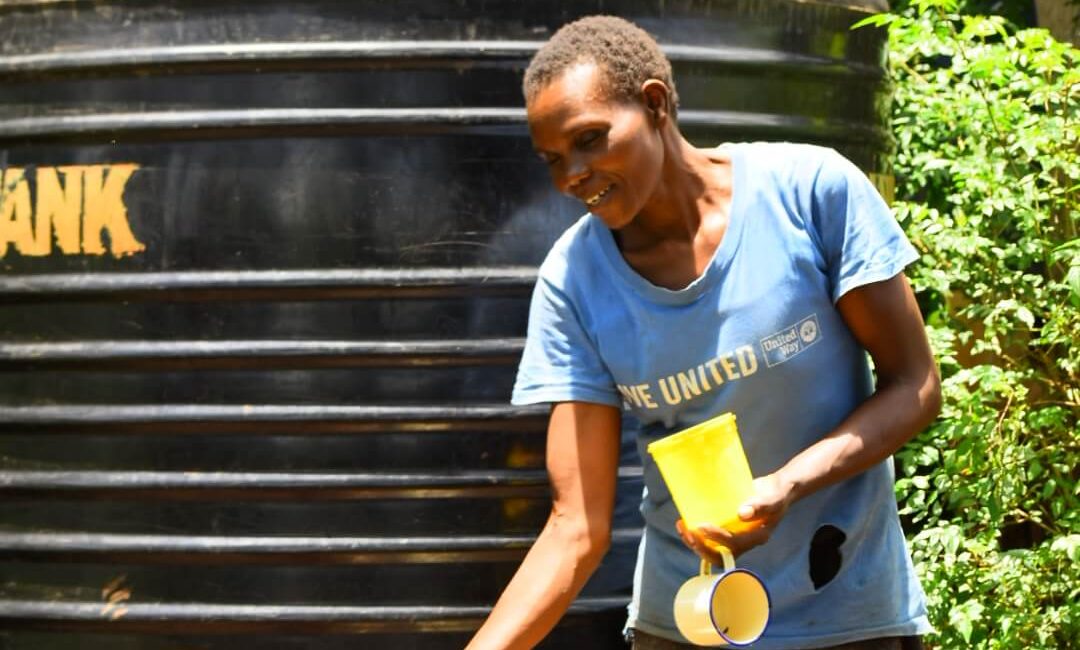In our unwavering commitment to the well-being of rural communities, Tekelbei
Foundation, believes that the provision of water tanks is not just a charitable act,
but a strategic solution in the fight against water scarcity.
Providing durable water tanks to needy rural community members covers them
from changing water availability and extreme weather patterns. In general using
tanks for water storage meets a larger need such as clean drinking water, water
supply for growing cities, flood control, clean energy, transportation, and
irrigation.
Water stored for food production can help manage the effects of droughts, which
in turn promotes the health and economic development of the most vulnerable.
In rural areas, where there is bigger gap in access to tapped/piped water supply,
most families are forced to contend with looking for water in unprotected rivers
and water pans. Installation of water tanks offers a lifeline of resilience. When
communities are able to use tanks to store rainwater, it allows them to be self-
sustaining and have water available for essential household needs.
Tanks offer one of the key solutions in tackling the global water crisis.
Among the advantages of tanks are:
a) Reliable water supply
The installation of water tanks in rural homes ensures a steady supply of water,
especially during periods of drought or water scarcity. For communities where the
main water supply such as rivers is unpredictable, these tanks offer a lifeline,
ensuring that families have access to water for drinking, cooking, and sanitation.
By harnessing rainwater, households can reduce their dependence on the main
water supply. With each drop collected, the promise of water security becomes a
reality for rural families not just in Bomet but the world over.
b) Affordable solution
In Africa, 230 million will not be able to access clean water by 2025. For families
burdened by the high cost of water supply, the installation of water tanks offers
much-needed relief. By collecting and storing rainwater, households can
significantly reduce their water bills over time, freeing up financial resources for
other essentials.
c) Low carbon footprint
Climate change is fast becoming a daily threat. In this regard, the adoption of
rainwater tanks offers a sustainable solution to reducing carbon emissions. By
minimizing reliance on energy-intensive water treatment and transportation
processes, households can play a crucial role in preserving the environment for
future generations.
With each drop of rainwater collected, brings a promise of sustainability and
creating a world with greener and more eco-conscious generations.
d) Less strain on major water sources
It is typical to see groups of villagers including women and children walking
several kilometers to get to the nearest river or water pan.
This usually leads to the strain on the main water sources especially during times
of drought or water scarcity. When the only river in a community dries up, this
places the health and lives of community members in danger. However, with
water tanks serving as reservoirs, households can alleviate this burden, reducing
the demand on already stretched water sources.
By collecting and using rainwater, families contribute to the efficient use of water
resources, ensuring that water is available for all, even in times of scarcity.
e) Reliable backup
In moments of crisis, when disaster strikes and the main water supply becomes
contaminated or unavailable, water tanks offer a reliable backup source of clean,
safe water. Whether it's during a natural disaster or another emergency, the
stored rainwater in these tanks ensures that families have access to a vital
resource when it is needed most.
f) Quality of water supply
Rainwater collected in water tanks is naturally soft and free from the minerals and
chemicals found in rivers or wells, making it ideal for various household purposes.
By using rainwater, households can enjoy clean, pure water without the additives
found in treated water, ensuring the well-being of their families.
Through the tireless efforts of the Tekelbei Foundation, the lives of 2000
individuals in rural Bomet have been transformed, with water now accessible at
their very doorstep through the provision of water tanks. This achievement not
only addresses immediate water needs but also contributes to the bigger fight
against climate change through the reuse of water.


 Tekelbei Foundation is a non-profit that’s duly registered in Kenya and whose aim is ensuring everyone has access to water by 2030. Our mission is to promote socio-economic prosperity for marginalized and vulnerable members of the community by providing access to safe, clean drinking water.
Tekelbei Foundation is a non-profit that’s duly registered in Kenya and whose aim is ensuring everyone has access to water by 2030. Our mission is to promote socio-economic prosperity for marginalized and vulnerable members of the community by providing access to safe, clean drinking water.